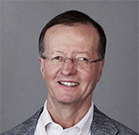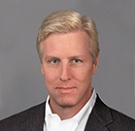 |
| Gilead Chief Scientific Officer Norbert Bischofberger |
As competition for its hepatitis C drugs intensifies, Gilead Sciences ($GILD) has been working to build up in other therapeutic areas, especially cancer. And while a painful clinical failure for the blockbuster hopeful Zydelig and the high-profile departure of oncology head Philippe Bishop have hamstrung those efforts, Gilead is bullish about its future in the field.
Zydelig got an FDA nod in 2014 for three kinds of blood cancer, but serious side effects--including death--have halted 6 trials using the drug in combination with a variety of others as a first-line therapy. Gilead said it would stop its programs investigating the drug as a first-line treatment, effectively closing one avenue of growth for Zydelig and compelling the company to look elsewhere.
Despite the setback, Gilead's Chief Scientific Officer Norbert Bischofberger is optimistic about the company's future in oncology, TheStreet reported. The Big Biotech has long said it's open to deals large and small in the space, and Bischofberger offered some clues to its strategy, telling TheStreet that Gilead is looking for novel approaches to immuno-oncology in lieu of playing catch-up with Merck ($MRK), Bristol-Myers Squibb ($BMY), which have commercialized treatments that fight tumors by blocking the protein PD-1.
"Strategically, what we want to do, instead, is to ask the question: What is it about the 70% to 80% of people that don't have a response to anti-PD-1 therapy?" Bischofberger told TheStreet's Adam Feuerstein. "We're absolutely very interested in immuno-oncology, but only if it is a truly differentiated compound from what is on the market or in late-stage clinical studies."
 |
| Gilead CEO John Milligan |
Although sales of Sovaldi and Harvoni are forecast to flatten, the duo has raked in buckets of cash--$4.89 billion in the fourth quarter--which has analysts repeatedly asking just what Gilead is going to buy next. After all, the company struck gold when it acquired Pharmasset in 2011 for about $11 billion and won approval for its lead hep C drug, Sovaldi, within two years.
And while new CEO John Milligan has highlighted other possible acquisition targets--inflammatory diseases and liver diseases--the fact that Gilead is trying to replace Bishop suggests that it's not exiting oncology anytime soon.
- here's TheStreet's story